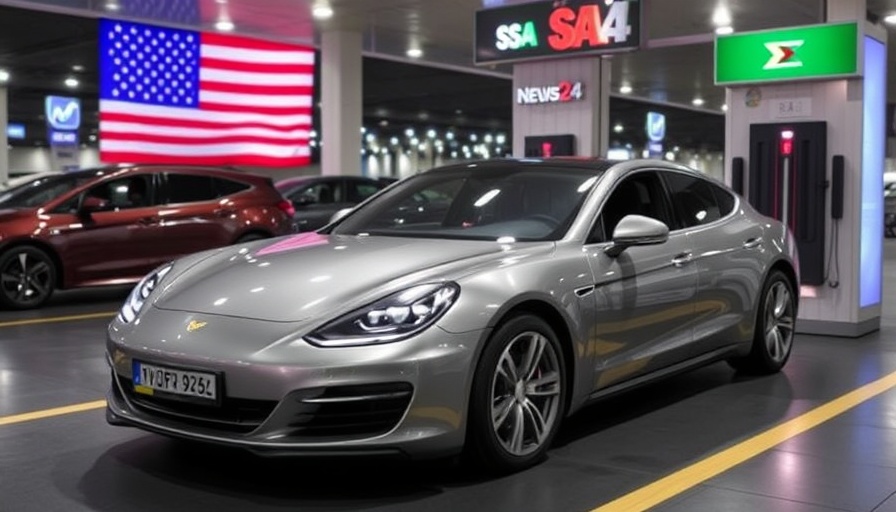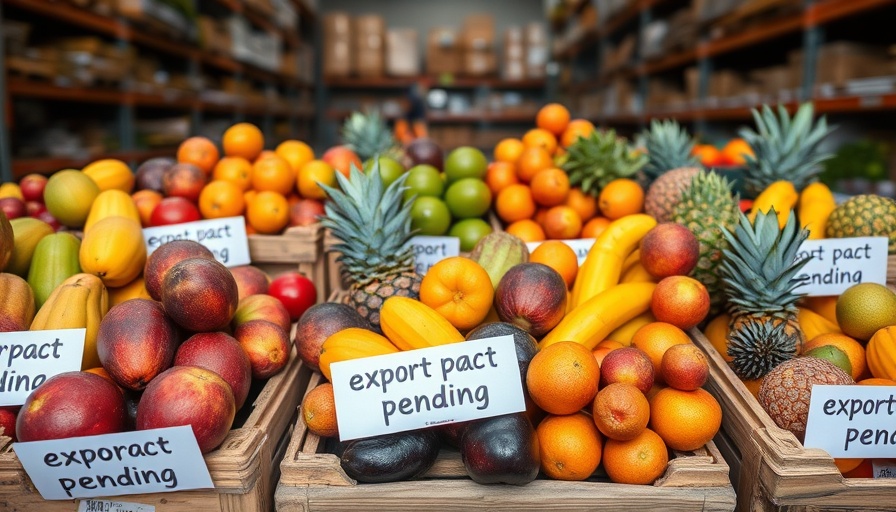
The Dynamics of South Africa's Gas Acquisition and Trade Relations
In a bold strategic move, South Africa has proposed a deal with the United States to purchase liquefied natural gas (LNG) in exchange for duty-free exports of vehicles. This proposition, revealed during discussions on trade agreements, has far-reaching implications not only for the economic landscape of South Africa but also for its international relations, especially within the context of its involvement in institutions like BRICS and SADC.
Contextualizing the Offer
This initiative comes at a time when South Africa grapples with significant energy challenges, primarily due to the ongoing Eskom crisis. Frequent load shedding has become an unwelcome norm, deeply affecting daily life and economic productivity. In efforts to mitigate these energy issues, tapping into off-shore gas resources presents a viable solution to bolster South Africa's energy independence and sustainability. The agreement with the U.S. could position South Africa to better address its energy needs while stimulating trade relations.
Impact on South Africa's Automotive Industry
The automotive sector forms a critical component of South Africa's economy, serving as one of the largest contributors to export revenue. With the prospect of duty-free exports, local car manufacturers might see a surge in international demand, enhancing production and potentially leading to job creation. This could play a pivotal role in combating the staggering unemployment rates, which have soared in recent years amid economic difficulties exacerbated by the pandemic and political instability.
Broader Economic Implications
Additionally, frameworks such as this might stimulate foreign investment, helping to stabilize the exchange rate fluctuations and address inflationary pressures felt across the country. With South Africa facing persistent challenges such as poverty and crime, strengthening economic ties through trade can foster a more resilient economy. It highlights the need for sound government policies that prioritize economic recovery while ensuring that all sectors benefit.
Looking Ahead: The Future of Trade Agreements
This proposal can be seen as part of a broader trend where nations are reevaluating their trade partnerships in light of global shifts. The focus on energy trade aligns with global initiatives promoting environmental conservation and renewable energy projects, echoing South Africa's commitment to address climate change. However, to fully capitalize on these opportunities, the government must tackle longstanding issues such as corruption investigations and inefficient public service delivery that mar investor confidence.
The Political Landscape and Public Sentiment
As national elections loom, the proposed deal touches upon key political themes. Both the ANC's government and opposition parties such as the Democratic Alliance (DA) and the Economic Freedom Fighters (EFF) have varying perspectives on how best to approach economic recovery and energy security. Public sentiment is crucial; voters are keen on tangible outcomes in their daily lives, and issues such as service delivery protests highlight the urgency of effective governance.
If Achieved, What This Means for South Africans
For citizens, the implications of this proposal extend beyond mere economic figures. It represents a potential pathway toward improved energy stability, reduced unemployment, and greater overall quality of life. As discussions progress, the government's performance in negotiating and implementing such trade agreements will be closely scrutinized by both political commentators and the public.
The Call for Accountability
In light of past experiences with corruption scandals and state capture, there exists a palpable demand from the citizenry for transparency in these negotiations. As South Africa endeavors to engage with global players, the challenge lies in balancing strategic interests with accountability, ensuring that any benefits derived from international agreements translate into meaningful progress for those in underrepresented communities.
In summary, the proposal to buy U.S. gas in exchange for duty-free car exports marks a critical juncture for South Africa's trade and energy policies. As stakeholders from various sectors weigh in, the nation stands at a crossroad, where the choices made today will dictate the trajectory of its recovery and growth.
 Add Row
Add Row  Add
Add 




Write A Comment